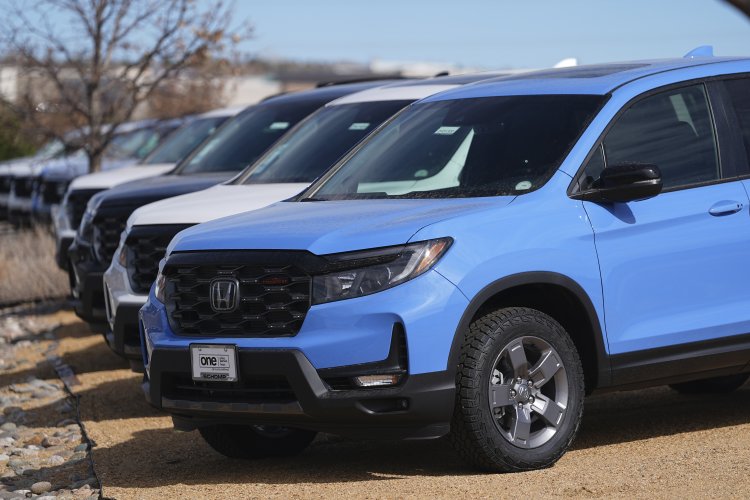Trump declares an additional 25 percent tariff on automobile imports
Dealers caution that the tariffs, set to be implemented by the U.S. on April 3, are expected to increase car prices in the domestic market.

According to data from the Commerce Department, the United States imported $214 billion worth of passenger cars in 2024. Trump stated that the U.S. would begin collecting these new tariffs on cars and light trucks starting April 3, which is only a week away.
“This is the beginning of Liberation Day in America,” the president declared at the White House. “We're going to take back just some of the money that has been taken from us.”
The majority of U.S. auto imports come from five countries: Mexico, Japan, South Korea, Canada, and Germany. Notably, Mexico, Canada, and South Korea currently enjoy duty-free access to the U.S. auto market due to free trade agreements renegotiated by Trump during his first term.
Other countries face a 2.5 percent tariff on their passenger car exports to the U.S. and a 25 percent tariff on light trucks, a high rate established during the trade tensions of the 1960s over barriers to U.S. poultry exports in Europe. Trump indicated that his new tariffs would be in addition to these existing rates, raising tariffs to 27.5 percent for passenger cars and 50 percent for light trucks.
While Trump aggressively utilized tariffs during his first term, they primarily targeted items such as steel, aluminum, and industrial components, goods that typically do not affect the average consumer directly. Moreover, tariffs on lower-priced consumer products like Chinese apparel and footwear had less noticeable price impacts. In contrast, an increased tariff on automobiles is likely to elevate the cost of a significant purchase that millions of Americans make annually. U.S. consumers acquired nearly 16 million cars in 2024, with an average price around $50,000, as reported by automotive industry tracker Kelley Blue Book.
Almost half of the vehicles sold in the U.S. are imported. Sudden tariffs on countries like Mexico and Canada could harm U.S. automakers, who have substantial operations in both nations, more significantly than their overseas competitors, according to research from Bernstein.
“If the goal is to re-shore production and rebuild U.S. auto manufacturing, a phased and predictable policy is the only viable path, in our view,” Bernstein noted. They added that maintaining a 25 percent tariff for an extended period could likely stifle the U.S. auto industry.
Trump affirmed on Wednesday his plan to make the auto tariffs permanent for the duration of his term.
Auto dealers have cautioned the administration that such tariffs could render cars less affordable, especially amidst ongoing inflation concerns for many Americans.
Valerie Romero, chair of the American International Automobile Dealers Association, estimated during a recent discussion that a 25 percent tariff could raise the average car price by $3,000 to $10,000. “Those are huge, huge dollar amounts and the consumer just can't absorb that,” she remarked, especially when considering rising auto loan rates and increasing insurance and repair expenses.
“Tariffs on U.S. trading partners, who are vital to our automotive supply chains, would make it harder for average Americans to afford the new vehicles of their choice,” Mike Stanton, president of the National Auto Dealers Association, similarly expressed in a recent statement.
Conversely, Sen. Bernie Moreno, a former car dealership owner, expressed less concern regarding the tariffs' impact on the auto industry. He stated he is “thrilled” about the anticipated increase in manufacturing in Ohio as well as growth in suppliers and job opportunities, along with the revitalization of communities following “40 years of de-industrialization.”
Despite the objective of boosting the automotive job market, Trump’s new tariffs could further drive a trend away from car ownership among younger consumers, according to Ed Gresser, a former official in the Office of the U.S. Trade Representative now affiliated with the Progressive Policy Institute.
“The U.S. car market, long-term, is already not growing, and a lot of people are thinking about doing without cars,” Gresser observed. “And the more you're pushing up the price of new cars, the larger that group of people not buying them is going to be.”
A Deloitte survey conducted in January revealed that 70 percent of American consumers prefer to purchase cars priced under $50,000, and a growing number of consumers in the U.S., Germany, and China are opting for transportation services instead of owning individual vehicles.
Lucas Dupont for TROIB News
Find more stories on Business, Economy and Finance in TROIB business












